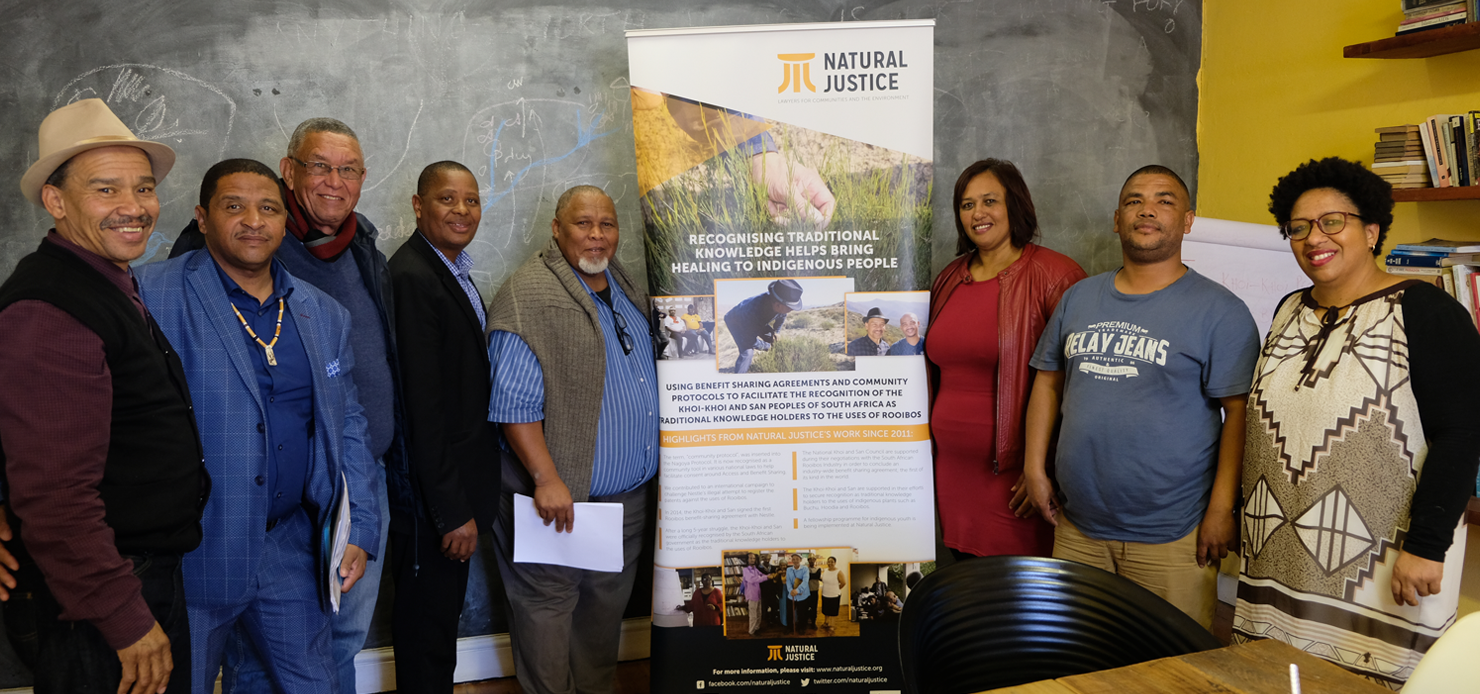

On November 1, 2019, the Government of South Africa’s Minister of Environment, Forestry and Fisheries, Barbara Creecy, announced the launch of the industry-wide Benefit Sharing Agreement on Traditional Knowledge associated with Rooibos. The agreement recognizes that the Rooibos and its use is part of the San and Khoi people of South Africa’s traditional knowledge, and that its exploitation and commercialization by the Rooibos industry should come with adequate compensation. Learn more about the agreement and what it means in terms of rule of law below.
Rooibos tea has become a delicacy enjoyed by people around the world. However, few know that the plant originated in the Wupperthal region of South Africa, where the San and Khoi people have used the plant for generations as a remedy for a wide range of ailments. After a scientist captured this knowledge around rooibos, companies got hold of the information and developed what has now become a multi-million dollar industry around the plant. But as others profit from the selling of rooibos tea, the San and Khoi people have largely been left out from enjoying the benefits of its commercialization and exploitation.
Natural Justice, a South African NGO working to defend the rights of indigenous communities, has been working for many years with the Ministry of Environment, Forestry and Fisheries to convince the rooibos industry to sign a benefit sharing agreement with the San and Khoi people. The agreement, just launched on November 1, 2019, recognizes the San and Khoi people's claim to the rooibos plant as traditional knowledge, and features a provision for adequate compensation for its exploitation and commercialization.
The first foundation for this agreement came through the Convention on Biodiversity (CBD), which provides guarantees for "the fair and equitable sharing of the benefits arising out of the utilization of genetic resources" such as Rooibos. This was supplemented by the Nagoya Protocol, the writing and signing of which Natural Justice helped achieve, which regulates how the CBD is implemented at a national level, and "creates incentives to conserve and sustainably use genetic resources, and therefore enhances the contribution of biodiversity to development and human well-being."
The government of South Africa also led a special investigation, which determined that: "There is no evidence that disputes that the Khoi and San are holders of Traditional Knowledge […] The Traditional Knowledge for Rooibos and Honeybush rests with the communities who originate in these areas."
Lesle Jansen, Director of Natural Justice's Cape Town Hub & Programme Director for Governance of Land and Natural Resources, has been leading the work on the rooibos case for Natural Justice. She was instrumental in shaping the landmark Access and Benefit Sharing Agreement with the rooibos industry. This agreement translates international standards into national regulations and means that "in order to exploit rooibos commercially, benefits will have to be paid to South Africa's Khoi and San communities."
WATCH: Pooven Moodley, executive director of Natural Justice, talks with WJP about what this agreement means for the San and Khoi people, and indigenous communities across the globe.
This case represents how effective regulatory enforcement leads to better access to justice for communities and is a reflection of a strong rule of law culture within a country. Regulatory enforcement measures the extent to which regulations are fairly and effectively implemented and enforced. In the rooibos case, the CBD and Nagoya protocol set the international framework that was then applied by the South African government as a regulation of the exploitation of a natural resource which belongs to a community so that they can receive adequate compensation for the exploitation of that resource.
Watch the documentary Rooibos Restitution here, find Pooven Moodley's keynote interview at the 2019 World Justice Forum here, and learn more about Natural Justice and the work they do fighting for indigenous communities across Africa at naturaljustice.org.






